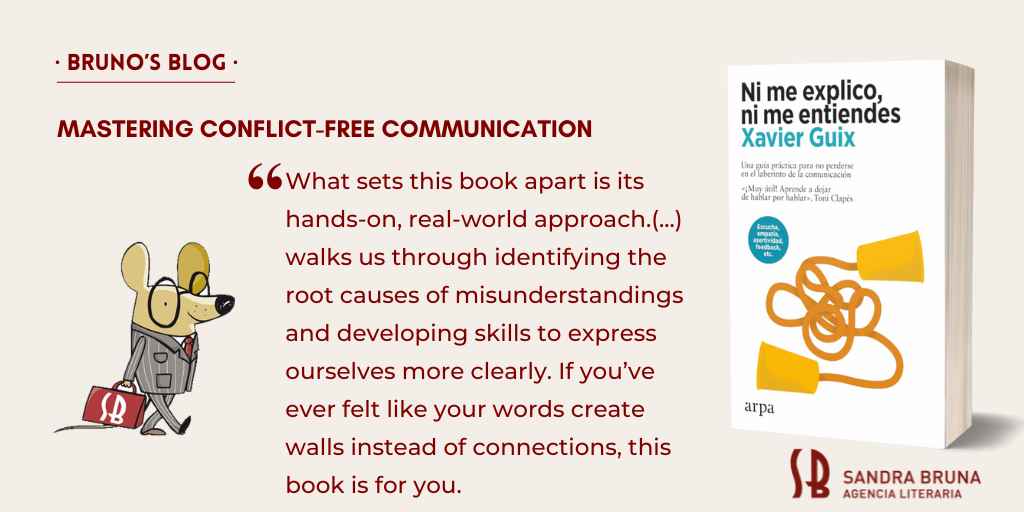Have you ever said something only to have the other person completely misunderstand you? Or found yourself in a conversation that started off harmless but somehow turned into a disaster? If this sounds familiar, there’s good news—there’s a way to fix it. Interpersonal communication can be a complex, even frustrating art, but Xavier Guix is here to guide us with his new book, ‘Neither do I explain myself, nor do you understand me’.
This book was published before ‘The problem of being too good’ (Original title: ‘El problema de ser demasiado bueno·), but Xavier Guix’s editor wanted to bring it back because we are in a moment in time when two generations must learn to interact with one another. There is a huge debate, especially among people of my generation, about the difficulties of understanding between both generations. While it is maybe more evident in the workplace, I believe there are more things diving us rather than bringing us close, mainly because we don’t understand each other. This is why I believe that ‘Neither do I explain myself, nor do you understand me’ is an ideal book to bring back, especially after the author’s revision, because it’s more necessary than ever.
This book is more than just a manual on speaking and listening. It’s a deep dive into the intricate world of human communication—a journey through our emotions, gestures, and words, which, often without us realizing, either build bridges or create barriers between us and others. With his engaging and crystal-clear style, Guix invites us to reflect on how emotions, nonverbal language, and the roles we assume in relationships shape our interactions.
The author brings us a refreshing, realistic, and highly practical perspective on communication. Using relatable examples and everyday situations, he unpacks why understanding each other is so difficult—and, more importantly, how we can fix it.
What sets this book apart is its hands-on, real-world approach. Guix doesn’t just theorize about communication; he walks us through identifying the root causes of misunderstandings and developing skills to express ourselves more clearly—minimizing unnecessary conflicts along the way. He also explores crucial topics such as first impressions, body language, and how our emotions can distort both what we say and what we hear.
If you’ve ever felt like your words create walls instead of connections, this book is for you. Whether you’re a natural listener, an outspoken communicator, or somewhere in between, Lost in Translation has something valuable to offer. Because in the end, we all need to learn how to express ourselves better—and, most importantly, to understand and be understood.
Don’t miss this transformative read that will change the way you connect with the world. Are you ready to communicate without conflict?

